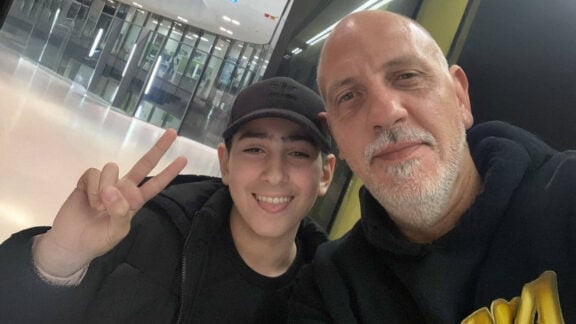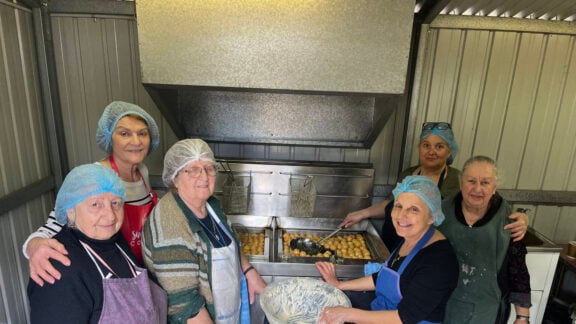As Greece continues to make a name for itself as a hub for IVF treatments, the number of Australian babies born with the assistance of Greek doctors is steadily increasing in the thousands.
And many of these parents, including comedian Mary Coustas, have Greek Australian gynaecologist Dr Kostas Pantos to thank for that.
Dr Pantos is leading the way to make Greece an IVF hub. He has helped thousands of couples conceive, and told Neos Kosmos more than 3,000 of those babies have been born to Australian families.
Thanks to his clinic Genesis Athens, founded in 2004, the latest technology and leading Greek scientists have worked wonders for prospective parents across the globe.
“The clinic has visiting couples from 32 countries, which we help to experience the joy of motherhood and fatherhood,” Dr Pantos told Neos Kosmos.
“I have every reason to believe that our success has created a very positive image of Greece in the area of fertility,” he said, recognising that IVF has boosted medical tourism to Greece, in addition to strengthening various public and private corporations in a challenging economic climate.
The doctor, who obtained his degree at the University of Athens in 1981 and pursued his specialisation at the Royal Melbourne Hospital, has also gone on to establish several modern IVF units in various parts of Greece, including Volos, Ioannina and Patras, bringing infertility treatment closer to patients outside of the capital.
After examining thousands of couples throughout the years, Dr Pantos says there’s no denying that infertility issues are becoming more common.
“This is due to the different priorities of both the man and the woman; people these days often hold off on starting a family thereby reducing their chance of fertility with age – especially women,” he explains.
But it’s not just women who are against the clock. “In recent years we have seen increased fertility problems in men too, mainly because of modern and sedentary lifestyles, pesticides that go into the food we consume and environmental pollution.”
He says more people are no longer viewing the IVF process as unnatural, but rather a facilitation of the reproductive process.








